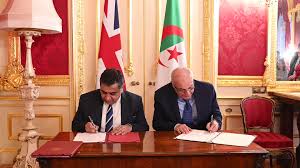
Algerian President Abdelmadjid Tebboune met with Fateh Boutbig, leader of the El-Moustakbel Front party, on Thursday as part of ongoing talks with political parties.
While the meeting signalled a public willingness to engage in dialogue, analysts suggest it highlights a tightly controlled political process in which the executive shapes the agenda.
Held at the request of the El-Moustakbel Front and attended by presidential communications advisor Kamel Sidi Said, the audience concluded with Mr. Boutbig noting that “the President of the Republic is open to national dialogue and to all initiatives aimed at remedying the dysfunctions.”
The politician called on both the political class and civil society to “strengthen the internal front” and support state institutions amid the country’s challenges. He also expressed confidence in the presidential program, presenting it as a set of reforms designed to further involve Algeria’s younger generation.
However, this meeting follows a familiar pattern. In recent months, President Tebboune has received leaders from the FLN, RND, MSP, El-Bina, FFS, and Sawt Echaâb parties. Most of these engagements are initiated by the parties themselves and often conclude with declarations of support for the president, reinforcing perceptions of a controlled, staged pluralism.
Simultaneously, the government is preparing revisions to the municipal and wilaya codes, as well as reforms of political party and electoral laws. Critics argue these changes, implemented without substantive public consultation, serve to consolidate executive authority rather than foster genuine democratic participation.
For many observers, President Tebboune’s rhetoric of “openness to dialogue” contrasts sharply with the reality of Algeria’s political system, which remains dominated by the executive and characterised by limited citizen input. The repeated audiences at El-Mouradia Palace, analysts suggest, are less about inclusive reform than the careful management of political appearances.
This tension underscores Algeria’s broader struggle to balance a public image of dialogue with the realities of a tightly controlled political environment.



